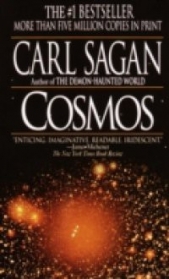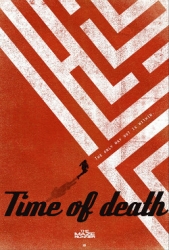Hear No Evil

Hear No Evil читать книгу онлайн
From Publishers Weekly
Miami lawyer Jack Swyteck is in for one hell of a roller coaster ride in this lapel-grabbing thriller, Grippando's ninth (Last to Die; etc.). Lindsey Hart, about to be charged with the murder of her husband, Marine Capt. Oscar Pintado, comes to Jack because she believes he is her last, best chance-and also the biological father of her adopted son. Stunned, Jack thinks he recognizes the picture of the 10-year-old she shows him ("he knew those dark eyes, that Roman nose"), but he still isn't sure whether he should take the case. What if he doesn't and she's innocent? She could be convicted. But if she's guilty-and he takes the case and wins it-he doesn't want to see the child raised by a murderer. Thanks to Grippando's devious mind, that's just the beginning. Plot twists, doled out with perfect timing, include the story of the murder victim, who's the son of a rich and powerful anti-Castro activist; the prosecutor's connection to Swyteck's family; and the testimony of the defense's prime witness, who is a private in Castro's army-the murder took place on the U.S. military base at Guant?namo Bay, Cuba. It's manipulative Lindsey, however, who proves to be the book's most unpredictable element. This character-driven, intricately plotted thriller will keep readers guessing up to the end.
Внимание! Книга может содержать контент только для совершеннолетних. Для несовершеннолетних чтение данного контента СТРОГО ЗАПРЕЩЕНО! Если в книге присутствует наличие пропаганды ЛГБТ и другого, запрещенного контента - просьба написать на почту [email protected] для удаления материала
“Such as?”
“The military is full of secrets. And plenty of people have died trying to keep them.”
“I need more than that.”
“Then help me find it, damn it.”
She was clearly frustrated, and Jack could understand it. He rose, walked around to the front of his desk, and took a more casual seat on the corner of it, no barriers between them. “Look, you’re probably thinking that lawyers defend guilty clients all the time, so why is this guy so obsessed with guilt or innocence. But this case is-”
“Different,” she said, finishing the thought for him. “I know.”
“You understand why?”
“Of course. You want what’s best for your,” she caught herself, then said, “for my son. Just as I do. Which is why I would never-even if I’d wanted Oscar dead-I would never have shot him in our house while our son was sleeping in the next room. Deaf or not. Does that make any sense at all to you, Mr. Swyteck?”
Jack met her stare, and suddenly the silence between them was no longer uncomfortable. It was as if the proverbial light had finally come on. “Yes, it does, Lindsey. And I think it’s probably time you started calling me Jack.”
6
Alejandro Pintado was searching for good news. Literally.
As usual, his search had taken him over the Straits of Florida, a band of water some ninety miles wide that connected the Gulf of Mexico to the Atlantic Ocean, that separated Key West from Cuba, that divided freedom from tyranny. For more than four decades Cubans had fled Fidel Castro’s oppressive communist regime in makeshift rafts, leaky boats, or even patched-up inner tubes. They risked their lives on the high seas, many of them making it to the United States, many others succumbing to tropical storms and walls of water, blistering sun and dehydration, or sunken vessels and hungry sharks. It was a tragedy that Alejandro had seen unfold with his own eyes, starting with his first mission in 1992. He’d made two passes over a small boat. On the first, he counted nine bodies strewn this way and that, as if they had simply collapsed. His second time around a woman stirred at the bow, barely able to raise her arm. She never moved again. As best the Coast Guard could tell, a storm had washed their water and supplies overboard on the first night of their journey. In desperation they drank seawater. There were no survivors. It was no wonder that, to the exile community in Miami, the Straits of Florida were known as the Cuban Private Cemetery.
Despite the danger, they kept coming. So long as they were out there, Alejandro Pintado was determined to keep looking.
“ Key West, this is Brother One,” he said, speaking into his radio transmitter. “I have a visual.”
“Copy that,” came the reply.
Alejandro pushed forward on the yoke and dropped to an altitude of five hundred feet, his old single-engine Cessna whining as it picked up speed. The scene on the open waters below him was a familiar one, but it still made his heart race. Six-to eight-foot seas, foamy white caps breaking against a vast ocean as blue as midnight, a thing of beauty if it weren’t so dangerous. A small raft rising to the top of each swell, then disappearing between them, the white canvas sail tattered from winds much stronger than most rafters could anticipate. The craft was overloaded, of course, packed with three children, five women-one of them holding an infant-and six men. Some were standing, having spotted the plane, waving the oars frantically to get the pilot’s attention.
You are almost home, thought Alejandro, smiling to himself.
His aircraft continued to descend. Three hundred feet. Two hundred. The rafters were jumping up and down, shouting with joy, as Alejandro sped past them. He waved from the cockpit, then began to circle around.
“ Key West, this is Brother One,” he said. “Looks like a happy group. Fairly good shape, considering.”
Alejandro had definitely seen worse. He’d started in the early nineties as a pilot with Brothers to the Rescue, a group of Cuban exiles who formed their own search-and-rescue missions after a nine-year-old boy died of dehydration on his journey from Cuba. Not everyone agreed with the organization’s hard-line anti-Castro stance, but it won international praise for an amazing recovery record. On average, the group saved one person every two hours of flight time, sparing thousands who might otherwise have perished at sea in their journey to freedom. The organization’s focus seemed to shift, however, after Cuban MiGs shot down two of its planes in 1996. More and more resources went toward printing and distributing anti-Casto leaflets. That was when Alejandro broke off and formed his own group, Brothers for Freedom. Eventually, the better-known Brothers to the Rescue would stop flying altogether. But Alejandro had vowed never to give up. Rescue missions were costly, and private donations were hard to come by, so he used his own money. Brothers for Freedom-and the search for a free Cuba -went on.
“Brother One, this is Key West. Do you have a location yet?”
“Copy that. Let me make one more pass and-” He stared out the window toward the horizon, his anger rising at the unmistakable sight of a vessel headed toward the rafters. “Forget it,” Alejandro said into the radio. “Coast Guard’s on its way.”
Alejandro could hear the disappointment in his own voice, and it seemed ironic even to him. In the early years, the sight of the Coast Guard was a blessing. In fact, he would have radioed for the Coast Guard upon sighting a raft. All that changed with the shift in U.S. immigration policy in 1996. Rafters intercepted at sea were no longer brought to the United States. They were either routed to another country or returned to Cuba. And if they went back to Cuba, it could mean five years in Castro’s prison.
“Dirty sons of bitches got another one,” said Alejandro.
“Sorry, Alejandro. You headed back?”
“Affirmative.”
“Okay. By the way, I got a phone call about twenty minutes ago. There’s a lawyer headed down from Miami to see you. His name is Jack Swyteck.”
Alejandro adjusted his headset, making sure he’d heard correctly. “Swyteck? Any relation to Harry Swyteck, the former governor?”
“I believe it’s his son.”
“What does he want?”
“He said it’s a legal matter. About your son.”
Alejandro’s throat tightened. Several weeks had passed since he’d received the kind of news that no parent should have to hear, but it still felt like yesterday. “How is he involved in this?”
“He was calling on behalf of Lindsey.”
Lindsey. Lindsey Hart. The Anglo daughter-in-law who in twelve years of marriage had never taken her husband’s Hispanic surname. “Don’t tell me that woman has gone out and hired herself the son of the former governor,” said Alejandro.
“I’m not sure. I got the sense he wants to talk to you before he takes her case. I told him to come by around two o’clock.”
Alejandro didn’t answer.
The radio crackled. “You want me to call him back and tell him to get lost?”
“No,” said Alejandro. “I’ll meet with him. I think he should hear what I have to say.”
“Copy that. Be safe, Alejandro.”
“Roger. See you in about forty minutes.”
Alejandro stole one last look at the rafters below, his heart sinking as he watched them waving frantically at the rescue plane overhead. Surely they were convinced that they’d reached freedom’s doorstep, that in a few hours they’d be safe and dry in the United States of America. But the U.S. Coast Guard had other designs, and once the border patrol interdicted rafters at sea, there was nothing Alejandro or anyone else could do. It sickened him to turn his plane away, knowing that their brief moment of hope would evaporate as his Cessna disappeared from sight.
Alejandro’s hand trembled as he reached inside his collar. Hanging around his neck was a gold medallion of the Virgin of Charity of El Cobre, the patron saint of Cuba, a good-luck charm of sorts that Cuban relatives in Miami often sent to their relatives in Cuba to keep them safe on their journey to freedom. He’d worn it on his own crossing of the straits in a rowboat, thirty years earlier.






















